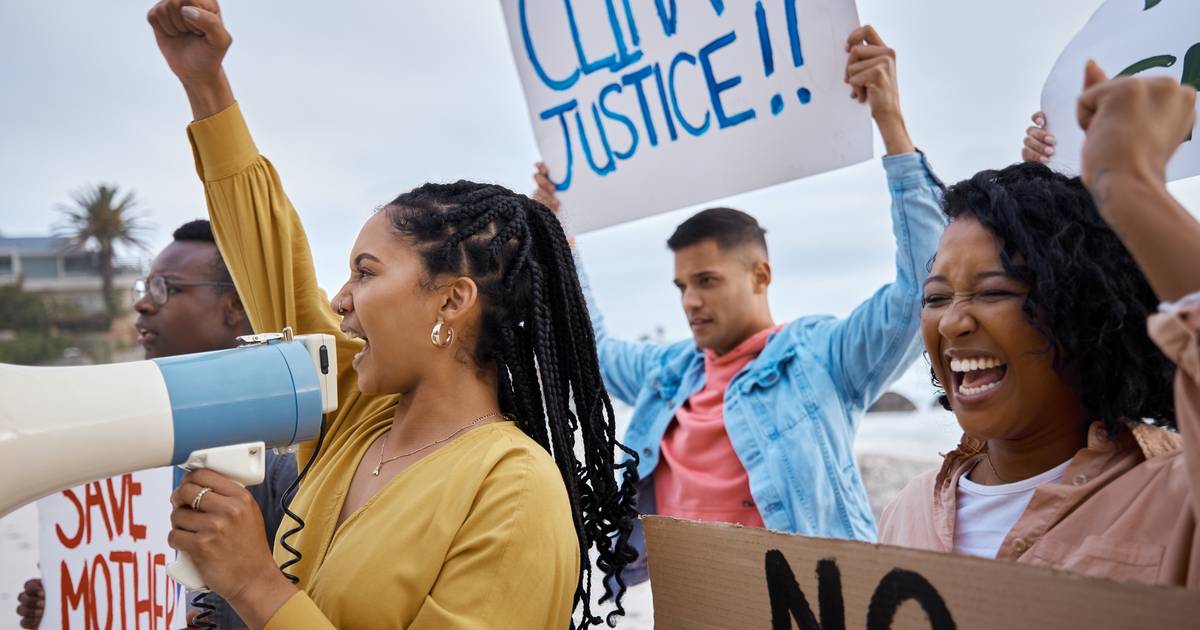We’re tired. Tired of boiling summers that torch Black and Brown communities while corporate office towers stay chilled at 70 degrees. Tired of watching our grandparents’ homes flood every year while insurance companies find new excuses and FEMA gets to us last. Tired of burying loved ones from heatstroke, asthma, and mold exposure, while politicians on Capitol Hill debate whether climate change is “real” or “woke.”
Black communities aren’t just watching the climate crisis unfold—we’re drowning in it, coughing through it, baking under it. And not because we caused it, but because we’ve always been the ones America forgets when the water rises.
Climate Change Doesn’t Hit Everyone the Same—It Hits Us Harder
The climate crisis is marketed as “universal,” but its impacts are anything but equal. While billionaires are building bunkers and beachfront homes on stilts, we’re watching our windows rattle in public housing without central air. Black Americans are 40% more likely to live in areas with the highest projected increases in heat-related deaths. We’re more likely to live near highways, waste treatment plants, and refineries—places where the air itself is a health hazard.
And it’s not just the environment. It’s policy. It’s neglect. It’s decades of redlining, disinvestment, and displacement that created these frontline communities in the first place. When Hurricane Katrina hit, it wasn’t just a natural disaster—it was a man-made one, built on decades of systemic disregard. Two decades later, cities like Jackson, Flint, and New Orleans are still fighting for clean water and functioning infrastructure.
Black folks aren’t “overreacting” to climate change. We’re just tired of reacting to it first, hardest, and alone.
The Climate Movement is Too White, Too Polished, and Too Late
Let’s be real—most mainstream climate movements aren’t built for us. They’re built by and for people who have always had the privilege of choosing sustainability. We don’t need more white faces holding signs at Coachella or billionaires greenwashing their brands. We need justice—designed, led, and implemented by the people most at risk.
For many of us, “going green” isn’t even an option. How do you switch to an electric vehicle when you’re juggling two jobs and a bus pass? How do you install solar panels when you rent an apartment where the landlord won’t fix the AC? How do you compost in a food desert?
The environmental movement loves to say “we’re all in this together,” but if that were true, funding, media, and resources would be flooding into Black-led climate orgs. Instead, we get the same cycle: photo ops, empty pledges, and nothing trickling down to our neighborhoods but the floodwaters.
We Don’t Need Performative Policy—We Need Reparative Action
It’s not enough to plant trees and pat yourselves on the back. We need bold, targeted, reparative policy that addresses the intersection of race, class, and climate. If you’re not talking about environmental racism, then you’re not talking about climate justice.
We need real investments in the neighborhoods that have been hit hardest—not when it’s convenient, but now. That means:
This isn’t about charity. This is about what we’re owed. Because we didn’t build the factories, but we’re the ones who’ve been breathing their exhaust for generations.
Survival Shouldn’t Be the Bar Anymore
We’ve been praised for our resilience for so long it’s become a backhanded compliment. “You’re so strong,” they say, while expecting us to endure unlivable conditions without complaint. When a Black mother makes it through a hurricane with her baby, she shouldn’t be turned into a viral inspiration meme. She should be offered protection, housing, and the dignity of preparedness—not just prayers and GoFundMe links.
Survival isn’t success. It’s the minimum. We deserve to live in safe homes with clean air and running water. We deserve communities that aren’t sacrificed to highways, pipelines, or industrial waste for someone else’s profit. And we deserve to thrive—not in spite of the climate crisis, but because the country finally took action before it was too late.
Dear America, we’ve marched, we’ve warned, we’ve rebuilt—and we’re still being asked to bear the brunt. You’ve had decades to fix this. And still, our neighborhoods flood first, our children wheeze first, our power goes out first. So no, we’re not impressed by your sustainability influencer campaign. We’re not clapping for your corporate “climate pledge.”
We’re asking—no, demanding—that you finally listen, fund, and follow the leadership of the very communities that your crisis has hit hardest. Because the climate crisis isn’t coming. It’s here. And we’re done being the ones holding our breath while you debate the cost of clean air.
If you won’t build systems that protect us, we will. But don’t be surprised when we build them without you.
